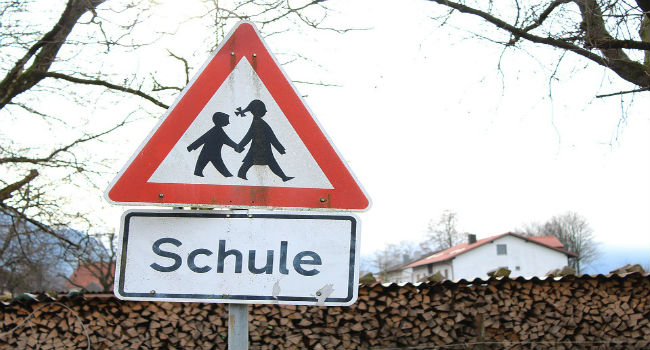Public Schools
Public schools have a good standard of education but expats tend to opt for these if they’re planning on staying in the country for a long period of time, or if their children are young enough to learn the language from scratch without it having a negative impact on the way they learn. In Germany, children only attend school in the morning, go home for lunch and sometimes return in the afternoon for extra-curricular activities.
There is an option of Kinderkrippe for toddlers and babies under the age of 3, and nursery or kindergarten known as between the ages of three and six is optional. Compulsory education begins from age seven until eighteen. Most children will attend primary school, Grundschule, from the age of six to twelve.
There are five types of schools that make up the secondary education system to help children to prepare for tertiary education or offer more vocational courses dependent on the children’s wants and needs. These schools include Gymnasium – which prepares students for tertiary education and finishes with a final examination, Realschule which offers broader education including vocational subjects for intermediate students, Hauptschule which offers vocational education, Gesamtschule which combines academic courses with vocational, and Sonderschule which prepare students for Hauptschule or Realschule.
You might also be interested in...
Private & International Schools
Because the standards of schooling in Germany are so high, some expats prefer to send their children to public schools in order to reduce costs. However, some expats also look at choosing a private school or international school in order to help their children to integrate into the language and curriculum a lot easier. Your child’s age and the length of time that you are planning to stay in Germany for will be some of the main factors that you will need to consider when it comes to choosing the schooling in Germany.
Private schools can cater to a variety of nationalities, and with international schools, expats can choose the school that offers their preferred language of learning and also the curriculum that is offered in their home country – ideal for a short-term move to the country. High-quality facilities, excellent levels of learning, smaller class sizes and extra-curricular activities are all factors that can be found in private and international schools.
Universities & Higher Education
There is an importance put upon universities and higher education in the country particularly in cities such as Berlin. Generally, students are expected to have passed the Abitur examination during their Gymnasium education, although there are other diplomas such as the Master Craftsman’s Diploma available to students who have attended Realschule, which allows them to apply for some university courses. There is also a form of apprenticeship program known as Duale Ausbildung which allows pupils who have studied vocational courses to do training at a company instead of heading to university.
If you’re considering moving to Germany with children, we can help you to find the perfect school no matter which part of Germany you are considering moving to. For more information, contact
www.santafe-move.com.






.png?itok=HBSyMDok)









































































.png)



























.png?itok=0fOAXkOm)

























.png?itok=EH_x0Pha)
